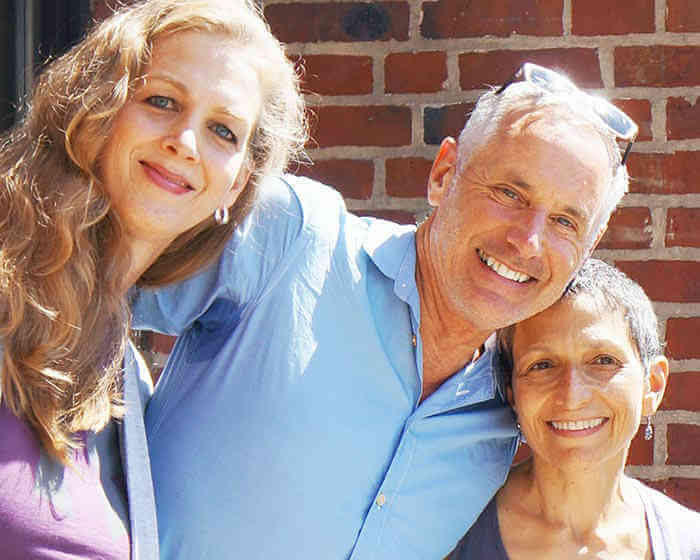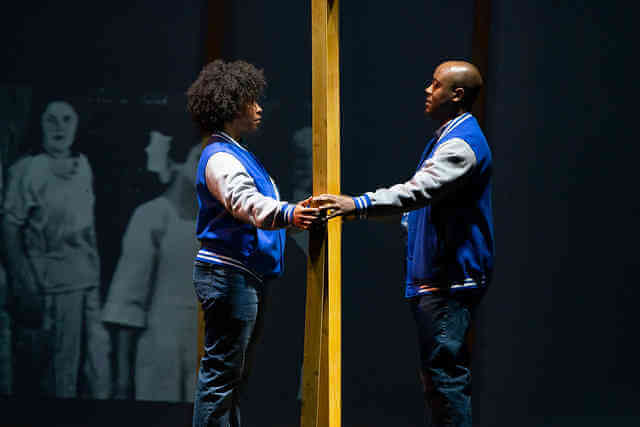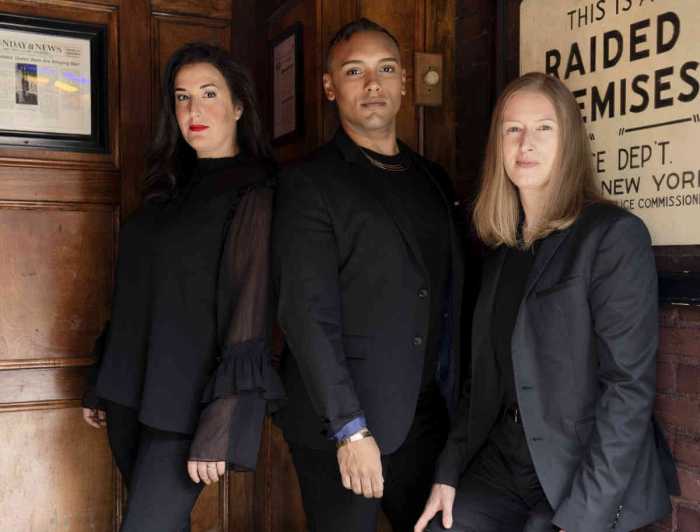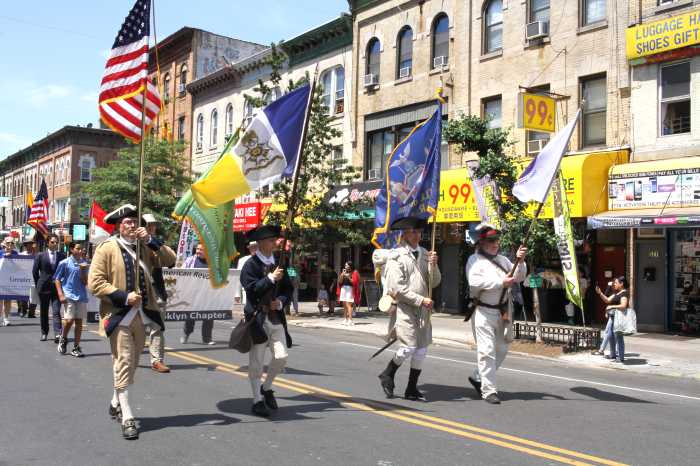In recent years, a number of contemporary American operas have overcome the usual fate of new operas — one or maybe two productions and then oblivion. Jake Heggie’s “Dead Man Walking” is produced every season in multiple regional theaters and André Previn’s “A Streetcar Named Desire” has been produced often in the US. And both have had European productions.
But neither of these operas had the meteoric rise of “As One” — a chamber opera for two singers and a string quartet about the journey of a transgender woman from male to female through 15 songs. The opera came from an idea by lesbian composer Laura Kaminsky who sought out the trans filmmaker Kimberly Reed (“Prodigal Sons,” “Dark Money”) and out gay librettist Mark Campbell (“Silent Night”) to collaborate on the project. The work premiered at BAM in 2014 in a production sponsored by American Opera Projects.
But “As One” didn’t stop there — it has become the most produced new American opera this decade. In the five years since its premiere, there have been more than two dozen productions across the country — with performances in San Antonio, Kansas City, Anchorage, Boise, Hawaii, Newfoundland, Canada, and Berlin, among others. There are at least 10 productions coming up.
One factor in the popularity of “As One” is not only the hot-button topic but the simplicity and portability of the piece. All that’s needed is a baritone and mezzo-soprano to play the “before” and “after” incarnations of the protagonist Hannah, a string quartet, and Kimberly Reed’s film that provides the visual background. It can play any type of space and has been performed in concert.
The work returns to New York City on May 30 in a co-production by New York City Opera and American Opera Projects for four performances at Merkin Hall until June 6. I spoke to the creators and the performers about finding your own voice and identity.
ELI JACOBSON: In the past decade, the transgender community has emerged as a politically and socially active force insisting on defining themselves and not being defined by heteronormative society, the medical profession, religious organizations, or politicians. Before finding one’s social and political voice, it’s necessary to find your own true identity and individual voice. “As One” seems to be about the journey to discover one’s own true voice through song. Can you share something from your own life where you discovered your own voice — either as a performer, creator, musician. or human being?
LAURA KAMINSKY (composer): There are so many. First, realizing I was gay. And then being able to finally own it for the first time. I just said it. Out loud. To myself… Joy!

MARK CAMPBELL (librettist): In the song “To know,” Kim and I tried the capture that moment in LGBTQ lives when we discover in our young lives that we are not alone on this planet. I drafted that aria based on my own experience when I first saw another gay person on television and found out, as the song says, “there are others.”
MICHAEL KELLY (baritone, “Hannah Before”): As a human being, my journey as a gay man was certainly the biggest transformative experience of my life. And although coming out as gay is not the same as the discovery of one’s gender, I believe there are many parallels. Through the process of learning the role of Hannah Before and discovering her fears and struggles in arriving at a place of self-love and acceptance, I can say that this was certainly how I felt about my sexuality. And just like Hannah in “As One,” it wasn’t until I fully accepted myself and my place in the world without looking for the approval of others, that was the moment I flourished. People saw me differently, and the ways in which I was hiding from the world, and even from myself, were no longer necessary. My confidence in myself allowed me to speak my truth in all situations, and I learned to stop fearing the consequences. There’s something about being who you are meant to be that sets you free. I think anyone can resonate with that feeling, and Hannah’s story is a universal one of acceptance and discovery of self. There isn’t a soul on the planet that can’t empathize with that.
BLYTHE GAISSERT (mezzo-soprano, “Hannah After”): I feel that it was actually working on the development of “As One” in its workshop days that showed me both who I am and want to be as a performer and also as a human. Meeting first Kimberly Reed and then others in the trans community over the past five years, I have seen what all of these amazing people have been through to just be themselves, and it has inspired me to live more authentically as well.
The two things that really strike me with each performance of the piece is that the general public, no matter their age or background, is so incredibly moved by the piece and shocked at the parallels to their own lives and feelings. The other part of this is the reaction from the trans community. I’ve met people all over the country that are so moved by hearing so many elements of their own story being told in this way.
It is very true that this story is definitely not every trans story, and is overall a very positive one for our character Hannah. But the creators wanted a positive story, representative of many feelings and events that are something most people can identify with. While giving a happy ending to inspire those that are still on their journey, they give a big nod to the violence and atrocities that are committed against the trans community as well — especially to trans people of color who are the most targeted statistically. [The alternate NYCO cast features two artists of color, Briana Elyse Hunter and Jorell Williams, performing “Hannah.”] In my view, this is a great effort to show the general public how much we are all just human. In my creative life it has bled over so much. I finally feel as though I can sing the way I want to and be a part of productions like this that encourage compassion and empathy, which is what I think is most lacking in the world today.
KIMBERLY REED (librettist, storyteller, filmmaker): Though life is full of quick realizations and little epiphanies — even sometimes when one goes looking for them — one of the main realizations in my life came on a retreat to solitude like Hannah experiences toward the end of “As One.” It happened over a year instead of a few days, but like Hannah After in “As One,” I did go to Norway looking for northern lights that failed to appear, though other lights went off for me. This retreat allowed me to return to my normal world with the courage and conviction to go through with my transition, and is the closest thing I know to finding my voice.
AS ONE | Merkin Hall at Kaufman Music Center, 129 W. 67th St. | May 30, Jun. 4 & 6 at 8 p.m.; Jun. 1 at 9 p.m. (Jorell Williams and Briana Elyse Hunter perform Hannah Before and After on Jun. 1 & 4 | $30-$95 at tickets.kaufmanmusiccenter.org or 212-501-3330




































